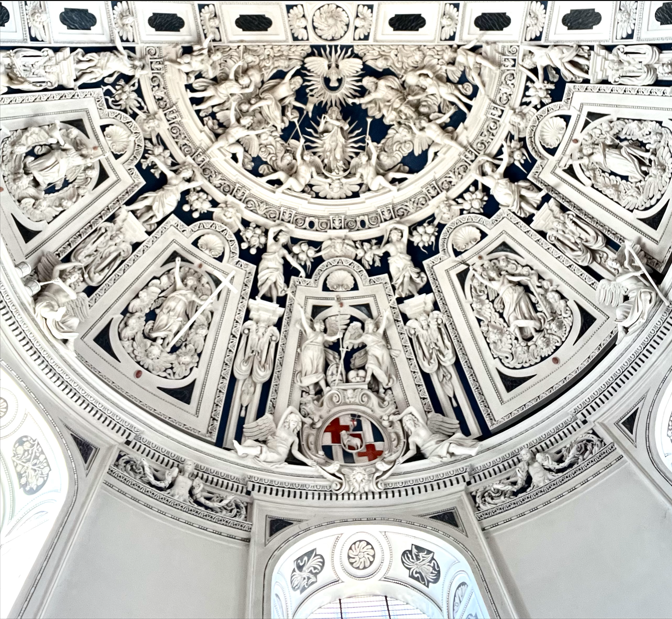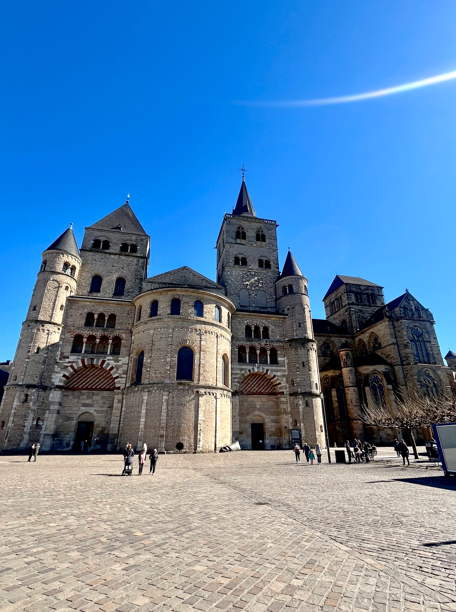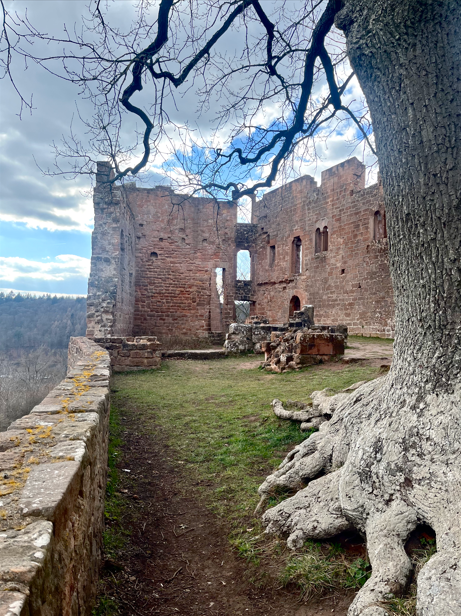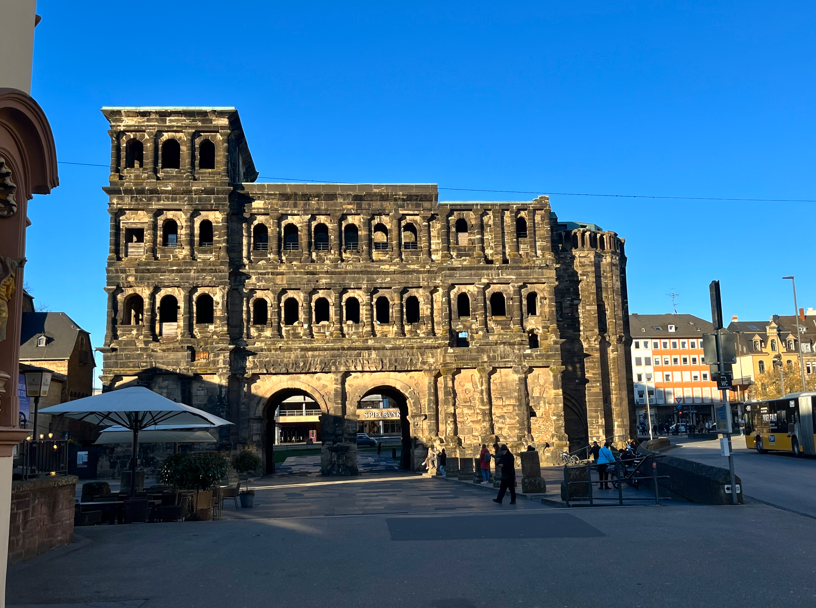Story Possibilities & What to do with Them
I’m sitting down after days of not writing because I was out and about with friends. Boysy and I had our first visitors from home, and it was delightful to both host them here and to do some exploring.
Earlier this month I wrote about idea generation, which I want to return to since travel—whether it’s to somewhere new in your home state or to an entirely different country—gets the thoughts percolating.
I’m all for spending hours in museums reading info plaques and getting glimpses of ancient artifacts. Europe is a great place for a history lover, that’s for sure. And we did have plans to check out a museum or two, but you know what? We didn’t get to them. We spent more time wandering city streets and partaking in the simple joy of being in places that have existed for longer than my brain can adequately comprehend. We didn’t need the artfully arranged exhibits; we just needed to see for ourselves what was out there.
We did our fair share of dipping into churches, too, and, between those old, old houses of worship and the views from the streets, my brain was soaking up plenty to feed ideas and the imagination. Even if I don’t end up incorporating details or observations into a current or future story, there’s a renewed sense of fueling the fire of my creativity.
When I’m sitting in a pew of a basilica that was built in the late 1500s, my brain itches to see the ghosts of those who called it their home parish. What did they wear? How did they hold themselves? Did they know just how beautiful a church they got to pray in every Sunday? I want phantoms through the ages, to see the people changing with the times and the church remaining the commonality of generations.
Or what about the castle ruins we explored closer to home? A sign on the grounds had a diagram telling me where the kitchen and the armory were, but what if I could be allowed a step back in time to see it myself instead of lingering in the broken perimeter of a room where people once slept? High on a hill in that crumbling castle, we guessed at how far ye old soldiers would have been able to see an invading army approach. We wondered and oriented ourselves as best we could. If we were playing pretend, we might have been Inigo and Westley dueling atop cliffs or the Pevensie children picking their way around what once was Cair Paravel.
Were I to write a story not of castle ruins but of a noble heyday, I’m not sure where to start because there are so many places to begin. So many roads you could take to land here in the present moment, standing beside an old well and gnarly tree in the remains of long-gone days.
My writer’s mind finds it exciting, thrilling, because I look at these things and places and I’m reminded of the abundance of possibility that awaits the pen. One place could feed your creativity for a lifetime, if you considered it from every angle, through all the years, and never stopped being curious about this singular question: What happened here?
Our day in Trier is coming to mind because it’s the oldest city in Germany—founded by the Romans in 16 BC—and we climbed up into its gate, doing our best to step back in time. After, we got lunch at a place whose menu had plates based on traditional Roman fare. We had fun eating a barley soup—vibrantly flavored with herbs—and imagined being a centurion on-duty at the gate who’d find nourishment from food just like that at the end of his day. He could have been anyone, done any number of things with his life, and all we could know was that he lived in Trier. There’s possibility waiting there, a story to tell.
And that’s the anchoring of an idea, right? We see, hear, smell something and our brains go, “Hey, there’s the potential for a story somewhere in that.” Writing requires an insatiable curiosity and an imagination that can fill in the gaps of what-might-have-been.
One of my bulletin boards in my home office has a huge cut-out pinned to it that says, What we see depends mainly on what we look for. In case these reflections didn’t make it obvious, I walk around looking for the hidden stories tucked into the corners of this world, anecdotes that may inform me of how people have existed and what that might say about them. I can gather tidbits here and there, and my characters may take on what I’ve collected. Their story arcs may be rooted in history.
What about you? What do you look for? What kinds of questions do you ask when you step out your door?
I’ve never left you with “homework,” so to speak, but I’m going to do so now. Let’s think of it as an Idea Generation Challenge. It is simply this: Over the course of a week, write down questions and curiosities that emerge as you live your day-to-day life and observe the world around you. You can put them all on a digital Note, write them on physical paper, or jot them on a sticky note you slap up on the wall. Do it your way, and don’t discredit the things your brain comes up with. Sometimes it’s the littlest, most simple questions that can lead to greater exploration.
An example of this would be how I came up with the idea for the first short story I ever finished. I wondered, What would each season be like, if they were a person? I hadn’t outlined a plot to fit this question nor did I over-think it too much. I just sat down and wrote. I can’t recall exactly how long it took me, but I didn’t stop until I’d finished. It must have been some time, though, because I emerged from the basement of my best friend’s house (I lived with her and her family that summer), I spotted her mom in the kitchen, asked her if she’d read this draft I’d just finished, and she said, “You know, I was wondering what you were doing down there,” as if I’d been down there for days.
I’d vanished into my mind, and the only way out was through writing. What I’d escaped with was a cohesive piece that captured the first sounds of my writing voice.
So, spend time intentionally gathering your questions, whatever they may be. Then choose one, to start, and consider all its story possibilities. When you’ve got somethin’, start writing. Write until you’re finished. Ask your best friend’s mom to be your first reader. Be humbled yet proud by the fact that an idea found you and you didn’t let it slip away.
Then do you know what? You begin again.
I said it in a previous post, but ideas are all around. Everywhere. Don’t just notice them, though; do something with them.
I’m gonna let Mary Oliver take it home from here because she says it better than I can: “The most regretful people on earth are those who felt the call to creative work, who felt their own creative power restive and uprising, and gave it neither power nor time.”
Don’t let your creative work go unfinished. Don’t let your ideas peter out. You can do it, friend.
Happy writing!



